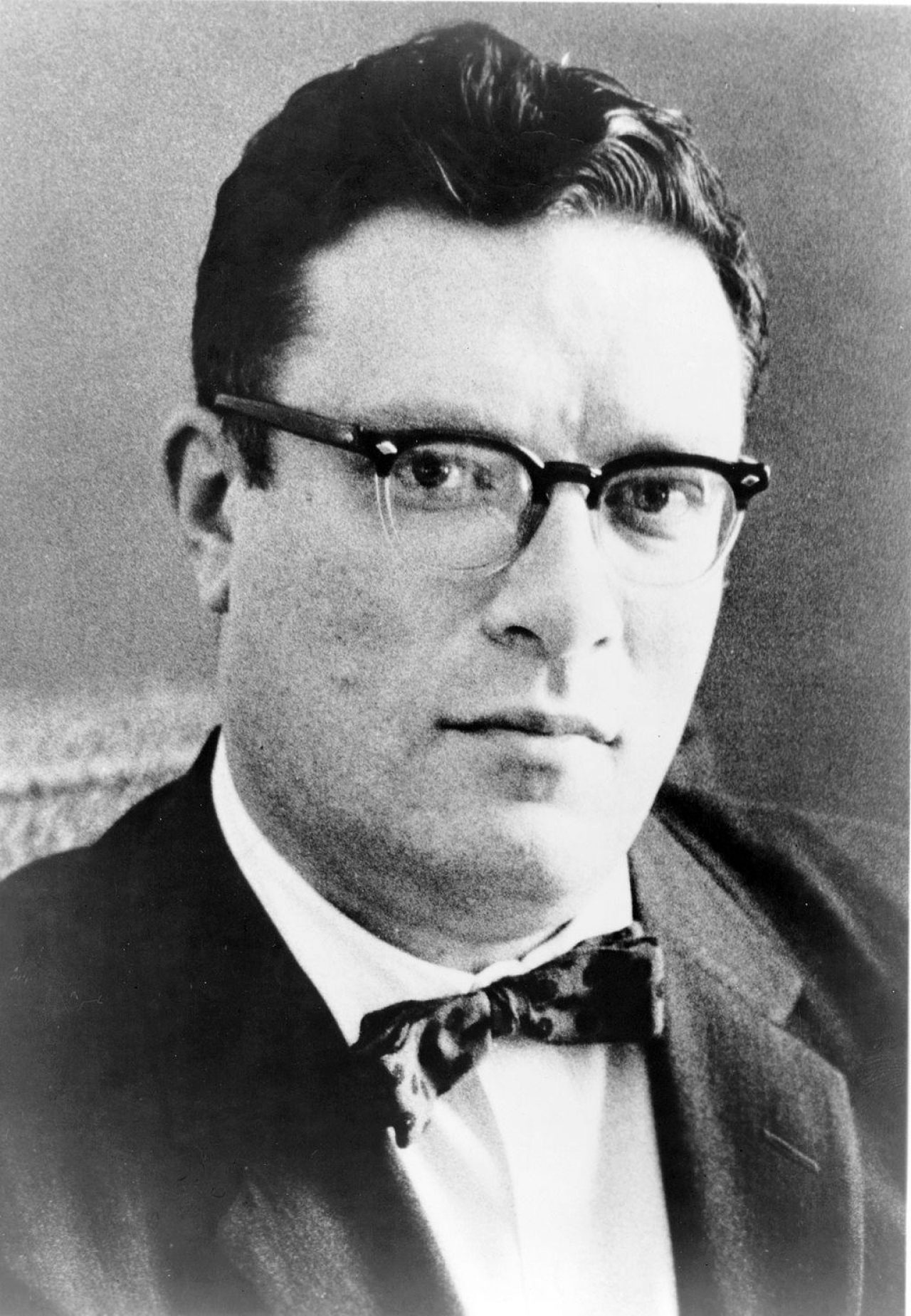Throwback Thursday: Happy Birthday, Mr. Asimov
Issac Asimov is one of the most popular fiction writers of all time—and one of the fathers of the science fiction genre.
Issac Asimov is one of the most popular fiction writers of all time—and one of the fathers of the science fiction genre. Despite so much of his work qualifying as fiction, Asimov has been hugely influential in the sphere of science and technology. You may not know this, but before he was a renowned author, Asimov was a biochemistry professor at Boston University.
We actually don’t know the exact date of Asimov’s birth, but Asmiov chose to celebrate it on January 2, 1920. His family was of Russian Jewish descent, emigrating from Soviet Russia to Brooklyn, New York to run a candy store when young Isaac was only three.
Asimov taught himself to read at age five and became a U.S. citizen at eight. He spoke both English and Yiddish fluently. After graduating from a Brooklyn high school at age fifteen, he studied chemistry first at Seth Low Junior College and then in the masters program at Columbia, where he would also eventually earn his PhD in biochemistry.
When he was a boy, Asimov read the sci-fi dime magazines sold in his parents’ confectionary and began penning stories of his own. Though some of his earliest stories were rejected by publishers, the editors he contacted encouraged him. Asimov kept writing, submitting his work to magazine editors and publishing houses.
In September 1941, when Asimov was only 21, his short story “Nightfall” was published in the magazine Astounding Science Fiction. It was the beginning an astounding writing career. In the years since, “Nightfall” has been deemed a classic, hailed as one of the best short stories ever written. The story deals with the people of a planet who, because of the nature of that planet’s star system, have never experienced total darkness, but will soon due to a pending eclipse.
Asimov was a proponent of what he termed social science fiction; he wrote stories and situations that used science and technology to explore human behavior and interconnections. His most famous novels include the Foundation trilogy; I, Robot (made into a film starring Will Smith in 2004); The Stars, Like Dust; and The Caves of Steel.
Some would claim that Asmiov is most famous for his stories dealing with robots and artificial intelligence; in fact, he is credited with coining the word “robotics.” His work in the subject heavily influenced those who came after him. Part of this was due to the creation of what he called “The Three Laws of Robotics”:
1. A robot may not injure a human being or, through inaction, allow a human being to come to harm.
2. A robot must obey the orders given to it by human beings, except where such orders would conflict with the First Law.
3. A robot must protect its own existence as long as such protection does not conflict with the First or Second Law.
Asimov did not only write about robots. His hundreds of novels and books—both fiction and non-fiction—touched on a myriad of subjects, from the Bible to marital relationships to Shakespeare. Because he was so well-versed in so many aspects of science as well as anthropology, his work is known for a strong sense of believability: the scenarios his stories present feel real and possible.
Despite publishing an essay pointing out the scientific inaccuracies and impossibilities Asimov found in the television series Star Trek, he remained good friends with the show’s creator, Gene Roddenberry, and would eventually act as a consultant on the Star Trek films.
Asimov remained an assistant professor on the faculty of the Columbia University of Medicine despite his writing income far outweighing his academic salary. He had a serious flight phobia, preferring to travel by cruise ship, especially in his latter years.
Isaac Asimov died in New York City April 6, 1992, a giant in science fiction and American culture. His family reported that his death was caused by heart and kidney failure—Asimov had suffered a heart attack in 1977 and underwent a triple bypass in 1983. In 2002, his second wife Janet Asimov revealed that Asimov had contracted HIV during a blood transfusion during his bypass surgery, and that the HIV had a direct role in his death.

 Member Connect
Member Connect